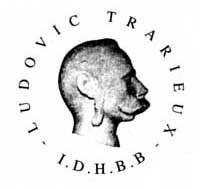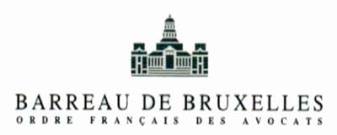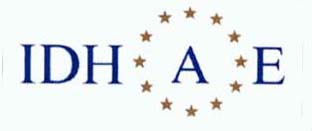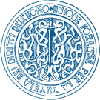|
|
|
|
|
|
|
INSTITUT DES DROITS DE L'HOMME DU BARREAU DE
BORDEAUX |
INSTITUT DES DROITS DE
L'HOMME DU BARREAU DE BRUXELLES |
INSTITUT DES DROITS DE
L'HOMME DU BARREAU DE PARIS |
INSTITUT DES DROITS DE L'HOMME DES AVOCATS
EUROPEENS |
UNIONE FORENSE PER LA TUTELA DEI DIRITTI
DELL'UOMO |
Ludovic-Trarieux International Human Rights Prize
2009
Prix
International des droits de l'homme Ludovic-Trarieux 2009
Premio
Internacional de Derechos Humanos Ludovic Trarieux 2009
Internationalen
Ludovic-Trarieux-Menschenrechtspreis 2009
Prêmio
Internacional de Direitos Humanos Ludovic Trarieux 2009
Premio
Internazionale per i Diritti Umani Ludovic Trarieux 2009
Ludovic Trarieux Internationale Mensenrechtenprijs 2009
Since 1984
"The international award given by Lawyers to a
Lawyer"
First African Prize Winner since Nelson Mandela jailed in 1985.
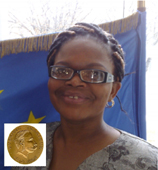
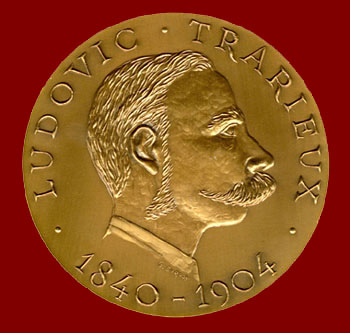 Beatrice Mtetwa
(ZIMBABWE)
Beatrice Mtetwa
(ZIMBABWE)
Ludovic-Trarieux International Human
Rights Prize 2009
The Jury meeting on Friday May 15th 2009, in House of
Lawyers in Paris, and presided by Bâtonnier CHARRIERE-BOURNAZEL , president
of Paris Bar Association, decided to award the fourteenth "LUDOVIC-TRARIEUX
INTERNATIONAL HUMAN RIGHTS PRIZE » 2009 to Beatrice METWA, a prominent media
lawyer in Zimbabwe, president of the Law Society of Zimbabwe for for her
trailblazing role in defending freedom of peaceful assembly ,
of association and freedom of speech and the rule of law in
Zimbabwe.
Beatrice Mtetwa who has lived with threats of incarceration
for her role in defending human rights, was awarded the prize “ for her
essential contribution in the struggle for freedom of peaceful assembly of
association and freedom of speech and the rule of law in Zimbabwe.“
The award is the oldest and most prestigious award reserved to a lawyer in the
world.
The first Prize was
awarded on March 29, 1985 to Nelson Mandela then in jail. So, Beatrice Mtetwa is
the first African Prize Winner since Nelson Mandela jailed in 1985.
The Ludovic-Trarieux International Human Rights Prize created in 1984 is
awarded every year to a lawyer, regardless of nationality or Bar, who, by his
work, will have illustrated his activity or his suffering, the defence of human
rights, of defence, the supremacy of law, the struggle against racism and
intolerance in any form, jointly by Human Rights Institutes established by bars
of Bordeaux, Brussels, Paris and the European Bar Human Rights Institute
(IDHAE) and the Unione Forense Per i Diritti Umani (Roma).

Biography
:
BeatriceBeatrice Mtetwa a prominent media lawyer, born in Swaziland, was
growing up in Swaziland, before moving in 1983 to Zimbabwe. She married in 1989
a local mathematics teacher and had two children.
As a Zimbabwean lawyer, Beatrice
Mtetwa, President of the Law Society of Zimbabwe and also one of Zimbabwe's
foremost lawyers defending opponents of Robert Mugabe's regime, all at great
personal risk. Those Mtetwa has defended include many black farmers evicted
from their land by the government, the mayor of Harare, a leading member of the
Movement for Democratic Change (MDC).
In a country where the law is used as
a weapon against independent journalists, Beatrice Mtetwa has continually
defended journalists in Zimbabwe who
have been detained and harassed. The illegal detention and torture of two
journalists in 1999 marked the beginning of an unprecedented clampdown on the free
press in Zimbabwe. This came as a new opposition party posed a strong challenge
to the government, and a new independent newspaper, the Daily News, was
reporting on critical issues. After the government lost a constitutional
referendum in 2000, it stepped up its war on the independent press. It
introduced new laws under which it became a crime to practise journalism in
Zimbabwe without government accreditation.
Beatrice Mtetwa has defended the Guardian newspaper's former Harare
correspondent Andrew Meldrum, an American journalist who was expelled from
Zimbabwe in May 2003 after 23 years as a correspondent for British papers. She
has worked on behalf of the Daily News, Zimbabwe's sole independent daily
newspaper until it was closed by the government in 2003. As a consequence, she
has been subjected to a savage beating by police.
On October 12, 2003, in Harare, she was the victim of a car-jacking for the
second time in eleven days. She contacted the police immediately following the
incident but, instead of helping Beatrice Mtetwa, the officers accused her of
being drunk and took her into custody. Despite their accusation the officers
failed to breathalise her...instead they assaulted her both on route to the
police station and then upon her arrival at the station During these assaults
she sustained injuries to her head, face, arms, back and thighs of such
severity that they required treatment at the Trauma Centre in Harare upon her
release.
In 2005, Beatrice Mtetwa won acquittals for Toby Harnden and Julian Simmonds,
journalists with The Sunday Telegraph of London, who were arrested outside a
polling station in Zimbabwe during a parliamentary
election.
In March 2007, while serving a court order on the police, she was violently
manhandled, roughed up abused and dragged by police officers from out of the
police station back into the police station where she had just served a court
order on the reluctant officers. Zimbabwe Lawyers for Human Rights reported
that violent incidents against its members are on the rise in Zimbabwe
following the recent crackdown by the police on opposition activities which
resulted in the fatal shooting of an MDC activist, the arrest and assaulting of
Morgan Tsvangirai and other pro-democracy leaders.
On May 8, 2007, Beatrice Mtetwa, and
other lawyers were severely beaten by the police in Harare, for leading the
legal profession in Zimbabwe to defend the rule of law and protest the frequent
harassment of lawyers in Zimbabwe by the police and the now endemic defiance of
court orders by the government. The four lawyers, dressed in professional
robes, had been forced into a police truck and driven to an open area in
Harare’s outskirts after officers broke up a protest of more than 60 lawyers
outside Zimbabwe’s High Court. Beatrice Mtetwa, suffered bruises on her back,
arms, and legs after police in Harare beat her and three colleagues with rubber
clubs for several minutes
During a crackdown on the press that occurred
amid presidential voting in 2008, Beatrice Mtwetwa successfully defended many
journalists, including New York Times reporter Barry Bearak and British
freelance journalist Steven Bevan charged with working without accreditation from Media and Information
Commission (MIC) in violation of a 2002 press law, under which journalists can
be sentenced to up to two years in prison.
In March 2009, thanks top Beatrice Mtetwa, human
rights campaigner Jestina Mukoko was released on bail from three months
of detention. At the same time, according to the
Committee to Protect Journalists (CPJ), the Zimbabwean attorney general's
office planned a baseless criminal investigation into Beatrice Mtetwa.
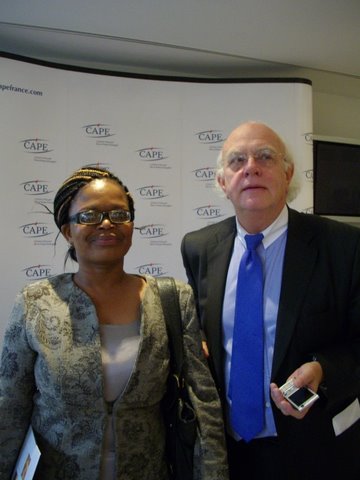
Beatrice Mtetwa avec Bertrand Favreau fondateur du Prix Ludovic Trarieux a
Paris en novembre 2009
1984-2009
Created in 1984, the "International Human Rights Prize Ludovic
Trarieux” is awarded to " a lawyer, regardless of nationality or Bar, who
thoroughout his career has illustrated, by his activity or his suffering, the
defence of human rights, the promotion of defence rights, the supremacy of law,
and the struggle against racism and intolerance in any form ".
It is
the oldest and most prestigious award given to a lawyer in the world,
commemorating the memory of the French lawyer, Ludovic Trarieux (1840-1904),
who in the midst of the Dreyfus Affair, in France, in 1898, founded the "
League for the Defence of Human Rights and the Citizen ", because, he
said: " It was not only the single cause of a man which was to be
defended, but behind this cause, law, justice, humanity ".
The
first Prize was awarded on March 29th, 1985 to Nelson Mandela then in jail. It
was officially presented to his daughter, Zenani Mandela Dlamini, on April 27th
1985, in front of forty presidents of Bars and Law Societies from Europe and
Africa. It was the first award given to Mandela in France and the first around
the world given by lawyers. On February 11th 1990, Nelson Mandela was released.
Since then, it was decided that the Prize would be awarded again.
Since
2003, the Prize is awarded every year in partnership by the Human Rights Institute
of The Bar of Bordeaux, the Human Rights Institute of the Bar of Paris, the
Human Rights Institute of The Bar of Brussels, l'Unione forense per la tutela dei
diritti dell'uomo (Roma) and
the European Bar Human Rights Institute (IDHAE) whose members are the biggest european
law societies fighting for human
rights such as The Union
Internationale des Avocats (UIA),
Rechtsanwaltskammer Berlin, Ordre français des Avocats du barreau de
Bruxelles, barreau de Luxembourg or Polish National Council of the Bar (Warsaw). It is
presented every year in a city that is home to one of the member Institutes.
1985: Nelson MANDELA
(South Africa)
1992: Augusto ZÚÑIGA
PAZ (Peru) †
1994: Jadranka CIGELJ
(Bosnia-Herzegovina)
1996
Nejib HOSNI (Tunisia) and Dalila MEZIANE (Algeria).
1998 ZHOU Guoqiang
(China)
2000 Esber YAGMURDERELI (Turkey)
2002 Mehrangiz KAR (Iran)
2003 Digna OCHOA and
Bárbara ZAMORA (Mexico)
2004: Akhtam NAISSE (Syria)
2005: Henri BURIN DES ROZIERS (Brazil)
2006: Parvez IMROZ (India)
2007 : René GÓMEZ
MANZANO (Cuba)
2008 : U AYE MYINT
(Burma)
